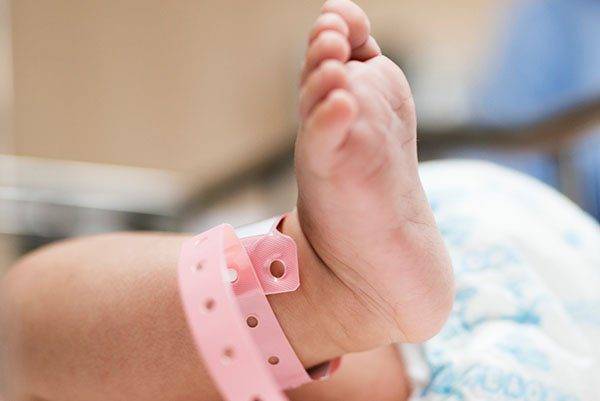Congrats, momma! The moment you’ve been waiting for has finally arrived – the moment you officially meet and hold your newborn baby in your arms. It’s now time for that next giant step: taking your beautiful new baby home.
Our first tip is to not let the stories overwhelm you…the sleepless nights, crying, and feeding sessions that seem to never end. Those things may happen but it gets easier from those first initial weeks and months.
Nothing can really prepare you for having a baby until you actually have one yourself. But we are here to help you not go into the journey blindly or alone. Here are a few things you can expect when taking your baby home for the first time.
What to Expect with Your Newborn
From feedings to burping, pooping to crying, sleeping to bathing…if you’re like us, the range of questions you have on taking your baby home could probably be organized into a short novel.
So let’s jump right in! Here is your roadmap on just some of the things you get to look forward to when you bring your newborn home:
Feeding
You would think that since your tiny baby comes with such a tiny stomach it couldn’t possibly eat that much, right? Well, not exactly.
While it’s true that your baby’s stomach is small, this just means that they feed in smaller amounts but very often. Remember that everyone is different and feedings vary from baby to baby. Every two or three hours is a pretty standard feeding schedule, but don’t be surprised if your baby feeds more frequently.
As for you momma, we know full well the pain that can occur during breastfeeding. But don’t worry! It is perfectly normal the first week or two to feel pain during the latch-on. While you may start to feel like you are a 24/7 drive-through restaurant – this does not last forever. Your body will adapt to the feedings sooner than you know it and the pain will eventually go away.
Crying
Your newborn baby is going to cry. How much the baby cries, however, is totally up to your baby – may the odds be ever in your favor.
The first few days, you can expect your baby to be relatively quiet and sleep a lot. Cherish these quieter days while you have them because between week two and week eight, the crying will most likely increase before finally leveling off.
There are going to be times when you know why your baby is crying. And then there will be times when your baby is crying for no reason at all. But don’t worry! Over time, you will learn exactly how to soothe and comfort your baby. And when that day comes, you are going to feel like an unstoppable ‘baby whisperer.’
Sleeping
You may start to notice a trend with your baby’s activities: small in quantity but large in frequency. Just like how your baby eats small amounts at a time but very frequently, the same goes for your baby’s sleep schedule.
Newborn babies sleep for 16 to 17 hours every day, but no more than one to two hours at a time. Most newborns lose weight in the first few days after birth. For that reason, KidsHealth suggests that newborns who sleep longer than two hours should be gently awakened to feed. They suggest waking your baby every 3 to 4 hours to eat until he or she shows good weight gain, which usually happens within the first couple of weeks after birth. After that, it’s OK to let your baby sleep for longer periods of time at night.
Bathing
A clean baby is a happy baby! And the good news is that cleaning your baby during the first few days is pretty simple. You will definitely want to follow your newborn’s doctor’s advice on bathing, but keeping the umbilical cord stump out of the water while it is still attached to your baby seems to be a general rule of thumb.
For now, a sponge bath is a preferred method for bath time. Use a warm, damp washcloth to gently wipe your baby and voila! You’ve got yourself a clean baby.
Now, Let’s Talk About You…
Don’t worry, we haven’t forgotten about you momma.
We know firsthand that taking a newborn home is one of the most exciting, life-changing moments you can ever experience. But it is also the most physically and mentally exhausting experience you will ever go through. What is the trick to maintaining your sanity during the first few weeks and months of motherhood? To cut yourself some serious slack!
Between your body healing from giving birth, the crazy hormone levels pumping through you, and the serious lack of sleep, the first few weeks are going to be a learning curve. Do not expect to do everything perfectly or to even feel like you know what you are doing at all. We said it once and we will say it again: every baby is different! You have to discover for yourself what works for you and your newborn and what doesn’t.
It is important that you take the time you need to care for yourself as your body heals and you adjust to motherhood. Fuel your body with healthy foods and use your baby’s nap times as a chance to catch up on your sleep, or take a nice shower, watch a little television, read a book – whatever does the trick for you!
And remember according to the CDC, postpartum depression (PPD) happens in 1 out of every 10 women and can also affect dads. Do not hesitate to get help and treatment. Your baby needs you at your best and so do you.
You Got This!
One more thing that we almost forgot: cherish these first moments with your little one. As scary and intimidating as taking your baby home may be at first, the first few months will also be some of the best memories you will have.
Enjoy these moments with your beautiful new baby and remember to enlist the help of family and friends when you are feeling a bit more overwhelmed than usual.
It takes a village so don’t hesitate for even a moment if you feel you could use the extra hands.




